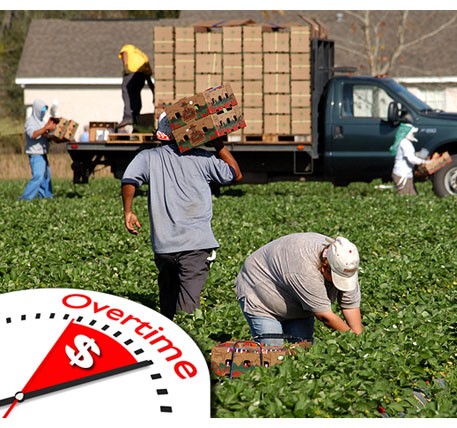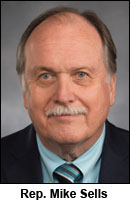OPINION
Legislature makes progress on protecting ‘essential workers’
Labor committee chairs hail advances on workers’ issues amid, after COVID
By Sen. KAREN KEISER and Rep. MIKE SELLS
(April 29, 2021) — We have heard a lot of talk about “essential workers” over the past year, as we depend on people whose work cannot be done remotely; tens of thousands of workers braving all hazards to keep our medical system functioning, our pantries full of food, and our buses moving.
Our reaction in the Washington State Legislature, which concluded its regular session on Sunday, was to not just call them “essential” but to treat them that way. And that’s exactly what we did, with historic legislation to strengthen workplace protections, both during the pandemic and every day after.

Two bipartisan bills, Senate Bills 5115 and 5190 created a safety net for health care workers, first responders, grocery workers, farm workers, childcare workers, bus drivers and other frontline workers by promising that if they caught COVID-19, it will be covered as an occupational disease for workers’ compensation benefits, including health care and wage replacement for the employee.
The fear and anxiety of going to work every day during a pandemic is lessened when frontline workers know they will not lose a paycheck if they get a contagious disease during a statewide health emergency.
House Bill 1097 gives workers who blow the whistle on workplace safety concerns more safeguards from employer retaliation or intimidation. From an emergency room doctor fired in Bellingham to farm workers who went on strike in Yakima, we heard about too many cases of retaliation and intimidation.
We also required better reporting by employers of disease outbreaks. To this day, the state Department of Labor and Industries does not learn in a timely fashion where outbreaks of COVID-19 occur. Outbreaks in meat-packing plants, grocery stores or emergency medical facilities get no response from the department because employers aren’t required to report where and when they happen. Another bill, SB 5254, ensures frontline workers have a right to use personal protective equipment on the job, even if the employer doesn’t require it.
We not only addressed workplace issues raised by the pandemic, we also tackled four longstanding workplace protection problems.
 First, we instituted overtime for farm workers. Agricultural workers were left out of the federal Fair Labor Standards Act in 1938, which meant they could work 70-hour weeks without receiving a dime of overtime pay. Now, thanks to SB 5172, a bipartisan compromise supported by growers and labor, this historical injustice will finally be corrected. Beginning Jan. 1, 2024, Washington will become the first state in the nation to provide all farm workers the right to overtime after a 40-hour workweek.
First, we instituted overtime for farm workers. Agricultural workers were left out of the federal Fair Labor Standards Act in 1938, which meant they could work 70-hour weeks without receiving a dime of overtime pay. Now, thanks to SB 5172, a bipartisan compromise supported by growers and labor, this historical injustice will finally be corrected. Beginning Jan. 1, 2024, Washington will become the first state in the nation to provide all farm workers the right to overtime after a 40-hour workweek.
Second, low-wage workers — often women and people of color — are often not paid for the full hours they work. Studies have shown that two-thirds of low-wage workers suffer wage theft. The Washington Wage Recovery Act, SB 5355, gives workers a new tool to get the pay they earned by allowing them to place a lien on the employer’s property.
Third, temporary workers are twice as likely to be hurt on the job as permanent workers. This was tragically brought home last year when an unshored trench collapsed at a work site in Thurston County, killing one young man and critically injuring another. This gave additional impetus to our longstanding effort to pass first-in-the-nation safety standards for temporary workers that provide them the training to protect themselves, and this year, HB 1206 became law.
Finally, our state’s landmark Paid Family and Medical Leave program has been a great success since beginning to provide benefits in 2020. Some workers who were laid off during the pandemic couldn’t collect enough hours to qualify, however, so we expanded eligibility with HB 1073. Now these workers can use the program to bond with a new baby or take care of a sick family member. Recognizing that not all families look alike, we also passed SB 5097 to expand the definition of family member for the purposes of family leave.
At the outset, it was unclear how much we would be able to achieve given the virtual Zoom rooms for hearings and floor votes. But it’s now clear: it has been a banner year for worker safety and health protections. We have made progress that will keep all Washington workers safer and healthier for years to come.

 Sen. Karen Keiser (D-Des Moines) chairs the Senate Labor, Commerce and Tribal Affairs Committee. Rep. Mike Sells (D-Everett) chairs of the House Labor and Workplace Standards Committee. This guest column originally appeared in The (Everett) Herald and is posted here with the authors’ permission.
Sen. Karen Keiser (D-Des Moines) chairs the Senate Labor, Commerce and Tribal Affairs Committee. Rep. Mike Sells (D-Everett) chairs of the House Labor and Workplace Standards Committee. This guest column originally appeared in The (Everett) Herald and is posted here with the authors’ permission.
In the coming weeks, the Washington State Labor Council, AFL-CIO will publish its 2021 Legislative Report and Voting Record, which summarizes the outcomes of working families legislation, and shows how each legislator voted, in the 2021 session.





